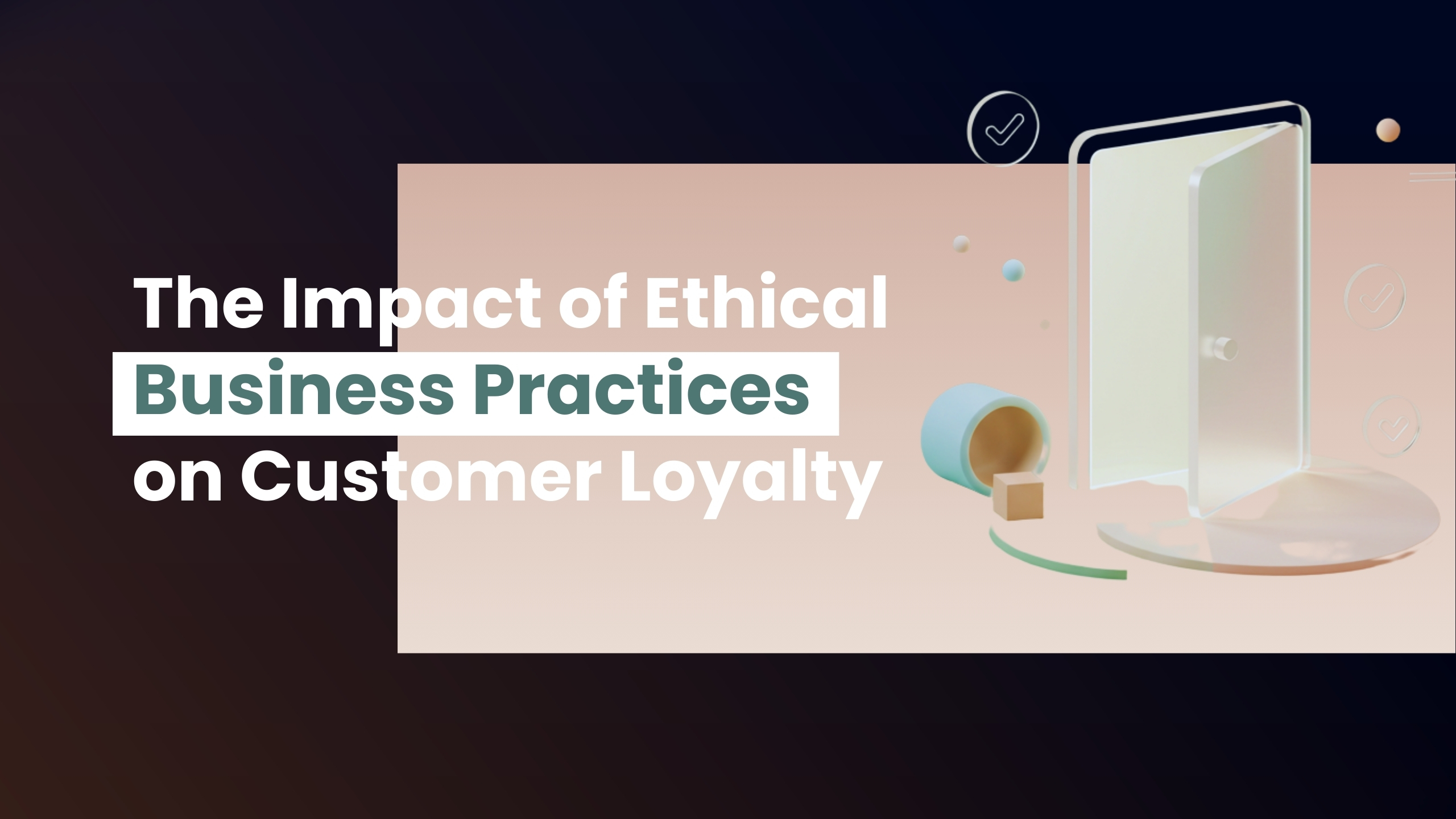The Impact of Ethical Business Practices on Customer Loyalty
In today’s digital marketplace, ethical business practices are more than a moral imperative—they are a competitive advantage. When customers see that a brand operates with integrity, fairness, and transparency, they are more likely to remain loyal and advocate for that brand. This article delves into how ethical practices influence customer loyalty and provides actionable strategies for building a trustworthy online presence.
- Why Ethical Practices Matter
Building Trust:
• Ethical behavior demonstrates a commitment to fairness and transparency, key factors in building customer trust.
• Trust leads to long-term loyalty, higher conversion rates, and positive word-of-mouth.
Enhancing Brand Reputation:
• A reputation for ethical practices differentiates your brand in a crowded market.
• Consumers increasingly choose brands that align with their values, making ethics a critical element of brand identity.
Long-Term Customer Relationships:
• Ethical practices foster a sense of community and responsibility, encouraging customers to invest emotionally in your brand.
• This emotional connection translates into repeat business and a robust customer base.
- Strategies to Implement Ethical Practices
Transparent Communication:
• Clearly share your business practices, sourcing methods, and operational policies.
• Publish detailed privacy policies, return procedures, and sustainability reports to keep customers informed.
Authentic Storytelling:
• Use real-life examples and customer testimonials to highlight your ethical initiatives.
• Share your brand’s origin story and core values to create an emotional connection with your audience.
Fair and Sustainable Sourcing:
• Partner with suppliers who adhere to ethical and sustainable practices.
• Showcase these partnerships and certifications to reinforce your commitment to responsible business.
Employee and Community Engagement:
• Ensure that your team embodies your ethical values through consistent training and clear internal policies.
• Engage with your community through social initiatives and support local causes, reinforcing your ethical commitment.
- Leveraging Technology to Support Ethics
Data Transparency and Security:
• Invest in robust cybersecurity measures to protect customer data, reinforcing trust.
• Use blockchain or other secure technologies to ensure the transparency of transactions and supply chains.
Real-Time Analytics:
• Monitor customer feedback and operational data in real time to ensure continuous improvement.
• Use analytics to adjust practices and maintain high ethical standards based on measurable outcomes.
- Overcoming Challenges
Balancing Transparency and Confidentiality:
• While sharing information builds trust, it’s crucial to protect proprietary data.
• Establish clear guidelines on what to disclose and what must remain confidential.
Managing Negative Feedback:
• Address customer concerns openly and constructively.
• Use negative feedback as an opportunity to demonstrate your commitment to ethical improvement.
Investment and Integration:
• Ethical initiatives often require upfront investment in technology and training.
• View these expenses as long-term investments that yield higher customer retention and brand loyalty.
FAQ
Q: Why are ethical business practices crucial for customer loyalty?
A: Ethical practices build trust and demonstrate a commitment to fairness and transparency, which encourage customers to stick with your brand over time.
Q: How can I showcase my commitment to ethics without revealing sensitive information?
A: Clearly communicate your core values, provide transparency in key areas like sourcing and data security, and share customer testimonials without disclosing proprietary details.
Q: What role does technology play in supporting ethical practices?
A: Technology such as blockchain, robust cybersecurity, and real-time analytics helps ensure transparency, secure transactions, and continuous improvement in ethical standards.
Q: How do ethical practices impact long-term customer relationships?
A: By fostering trust and authenticity, ethical practices create deeper emotional connections with customers, leading to higher retention and advocacy.
Conclusion
Ethical business practices are a cornerstone of building lasting customer loyalty. By being transparent, authentic, and committed to sustainable and fair practices, you can differentiate your brand and foster a loyal customer base that not only buys from you but champions your values. Embrace these strategies to build a resilient, trustworthy online brand that stands out in today’s competitive marketplace.
Share your experiences or success stories about ethical business practices in the comments below, or contact our team for personalized advice on enhancing your brand’s integrity. Let’s build a future where ethical retail drives sustainable growth and customer loyalty!

